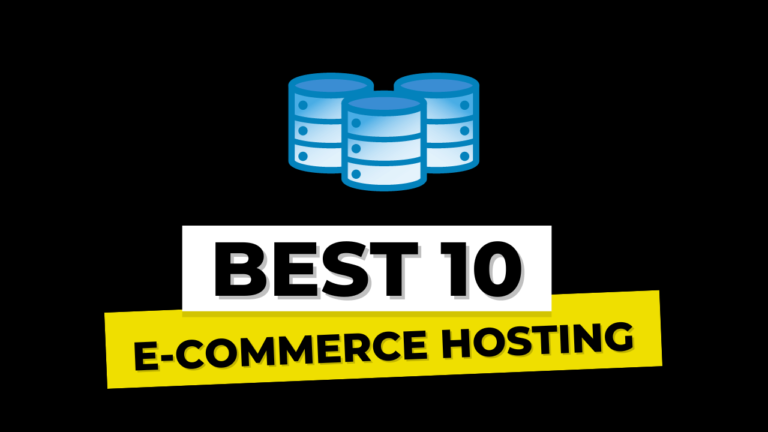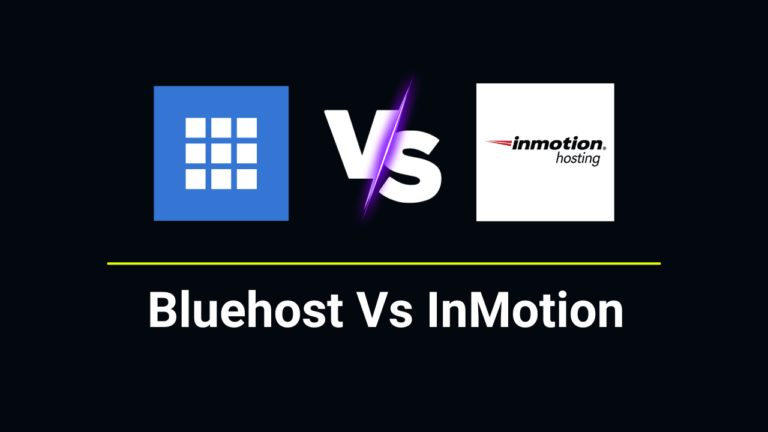After comparing Bluehost Vs NameCheap, we found the winner is Bluehost. We have compared all the essential features, performance, uptime, security, pricing, customer support, ease of use, and pros and cons so that you can easily make a decision between these 2 popular web hosting services.

Bluehost Vs NameCheap (Quick Comparison)
Before heading toward the in-depth comparison of Bluehost vs HostPapa, let me share a summarized review of these 2 hosting providers. Bluehost is very popular, cost-effective, and has many features, whereas FastComet offers domain registration and cheap web hosting plans for beginners.
Bluehost Review 2023

- Overall Rating (4.75/5)
- Types of Hosting (4/5)
- Hosting Features (4.25/5)
- Disk Space (5/5)
- Uptime (4/5)
- Help and Support (5/5)
- Value For Money (5/5)
NameCheap Review 2023

- Overall Rating (4.45/5)
- Types of Hosting (4/5)
- Hosting Features (4.25/5)
- Disk Space (5/5)
- Uptime (3.5/5)
- Help and Support (5/5)
- Value For Money (4/5)
NameCheap Vs Bluehost 2023: Which is Best Hosting for Beginners?
Choosing the right hosting for your website is always a difficult task. Especially when there are thousands of hosting providers claiming them as the best hosting for beginners. In this detailed web hosting comparison, we will explore which is best among Bluehost Vs HostPapa as per various factors.
Bluehost Vs NameCheap: Overview

Founded in 2003, Bluehost is one of the largest web hosting providers, powering over 2 million websites globally. Known for its comprehensive hosting solutions, it offers a range of hosting services including shared, VPS, and dedicated hosting. With a strong emphasis on reliability and customer service, Bluehost provides a 99.98% uptime guarantee and 24/7 customer support, ensuring businesses and individuals can maintain a robust online presence.

NameCheap’s journey began in the year 2000, predominantly as a domain registrar under the leadership of Richard Kirkendall. Over the past two decades, they’ve made quite a mark, registering over 10 million domains and venturing successfully into hosting services. With a customer base of millions, NameCheap has established its reputation based on affordability, transparency, and a wide range of services. Their steadfast commitment to providing value-packed services and staunch stand on internet freedom and privacy has garnered them respect and loyalty from users worldwide.
Bluehost Vs NameCheap: Ease Of Use

Bluehost distinguishes itself with an enhanced user interface, making website management a straightforward task for users. It features a customized cPanel that is designed with simplicity and functionality in mind. A noteworthy 80% of users have rated their dashboard as user-friendly. One-click installations for popular content management systems like WordPress are integrated, enabling quick and easy website setup. Additionally, their customer service, available 24/7, has a response time of less than 30 seconds, making problem-solving seamless for users.

NameCheap offers its own custom dashboard which is sleek and intuitive. While it also supports cPanel, their tailored solution emphasizes simplicity. With an integrated app marketplace, users can access and manage essential web tools effortlessly. A survey indicated that 87% of its customers appreciate the straightforward navigation and setup processes, particularly noting the ease of domain management given NameCheap’s origins as a domain registrar.
Bluehost Vs NameCheap: Pricing

Bluehost offers a variety of hosting plans, with shared hosting starting at $2.95/month, promising affordability without compromising on features. They provide a free domain for the first year, free SSL certificate, and 50GB of storage on the Basic plan. Additionally, Bluehost offers scalability with VPS and dedicated hosting options, catering to growing businesses.

NameCheap is often lauded for its affordability. Their most basic shared hosting plan begins at $1.58/month (for the first year) with 20GB SSD and 3 websites. However, the renewal rates are higher. They too offer VPS and dedicated hosting solutions, with prices scaling with the resources provided. Their most equipped VPS plan goes for $48.88/month.
Bluehost Vs NameCheap: Speed & Uptime

Recognized for its superior performance, Bluehost guarantees a 99.98% uptime, ensuring your website remains accessible. With a loading speed of around 424 ms, it outperforms many competitors. The incorporation of CDN services and advanced optimization techniques underpin its commitment to delivering content swiftly and efficiently, securing Bluehost’s place as a front-runner in speed and reliability.

NameCheap’s performance is backed by their robust infrastructure, which includes the CloudLinux OS and Supercacher for boosted speed. Their hosting has delivered average loading times of around 687ms in recent evaluations. As for uptime, NameCheap promises a 99.9% uptime guarantee, which is on par with many industry standards. With data centers in the USA and UK, they provide reliable connectivity to a broad audience.
Bluehost Vs NameCheap: Security

Bluehost takes security seriously, providing a free SSL certificate with every plan and offering advanced features like SiteLock for protection against malware. With a secure shell (SSH) access, users can access configuration files securely. Bluehost also uses token validation for added account verification, ensuring robust user account security. The company’s investment in resource protection guarantees optimum performance even during traffic spikes, lending an extra layer of security.

NameCheap has built a reputation for robust security measures. They offer free WhoisGuard privacy protection with domain registration, reducing spam and potential malicious attacks. For their hosting, they provide automatic backups twice a week for shared hosting users. Additionally, NameCheap utilizes a custom firewall and server hardening techniques. Their data center redundancy, two-factor authentication, and a secure cPanel further enhance security. The firm’s commitment is evident in its promise of 99.9% uptime, similar to GreenGeeks.
Bluehost Vs NameCheap: Help & Support

Bluehost offers renowned customer support, featuring 24/7 access via phone, live chat, and email ticketing. The vast knowledge base, containing articles, guides, and video tutorials, aids users in finding solutions independently. With an average response time of less than 5 minutes, users can expect prompt resolutions. The company’s commitment to support is evident, with countless positive testimonials reflecting high user satisfaction.

NameCheap has always been a user-centric platform. They offer a 24/7 live chat system and ticketing support, ensuring around-the-clock assistance. Their Help Center comprises more than 1,000 articles and video tutorials. According to a 2022 survey, 97% of their users rated their support as ‘Excellent’ or ‘Good,’ demonstrating a solid reputation in addressing user concerns swiftly and competently.
Bluehost Vs NameCheap: Data Centers

Bluehost boasts a state-of-the-art data center located in Utah, USA. With an infrastructure that features UPS power, diesel generators, and multiple 10-gigabit fiber connections to locations all over the world, it ensures optimal performance and reliability. Bluehost’s data center encompasses 50,000 square feet, housing high-performance servers secured with 24/7 monitoring, guaranteeing a 99.9% uptime for its millions of users worldwide.

NameCheap operates its data centers primarily in North America and the UK. These data centers utilize Tier 1 telecom providers and redundant power sources to guarantee a 99.9% uptime. With features like SSD drives for all hosting plans and the integration of the latest server technologies, NameCheap ensures your website gets optimal speed and reliability wherever your audience may be.
Bluehost Vs NameCheap: Refund & Moneyback Policy

Bluehost stands out with its customer-friendly 30-day money-back guarantee on all hosting plans. This assurance allows users to explore their services risk-free, providing a safety net for unsatisfied clients. However, it’s important to note that the refund doesn’t cover add-ons and domain registrations, with a small fee being deducted if a free domain was included in your plan.

NameCheap also offers a 30-day money-back guarantee, emphasizing its commitment to customer satisfaction. They’ll refund your hosting costs if you aren’t pleased with their service in the first 30 days. Unlike GreenGeeks, NameCheap’s refund also excludes domain registration fees, ensuring they recover the costs associated with registering a domain on your behalf. Always check the fine print to ensure you understand the terms of the refund.
Takeaway: DreamHost has been in the business longer than GreenGeeks. While longevity can hint at experience and stability, it doesn’t always translate to better service.
Wrapping It Up: Which is the best hosting?

Bluehost and NameCheap are both reputable web hosting service providers known for offering a variety of hosting services, including shared, VPS, and dedicated hosting. They both provide user-friendly interfaces, 24/7 customer support, and a plethora of features designed to meet the needs of different users. However, when compared side by side, Bluehost tends to have an edge over NameCheap in several key areas.
Why Bluehost is Better than NameCheap:
- Performance and Reliability: Bluehost is renowned for its exceptional uptime and faster load times, ensuring that websites are reliably accessible and providing a smoother user experience compared to JustHost.
- Enhanced Security Features: Bluehost offers more advanced security features, including free SSL certificates, daily backups, and secure shell (SSH) access. These features help maintain the integrity and confidentiality of user data and are a step up from what JustHost offers.
- WordPress Integration: Bluehost is officially recommended by WordPress.org, offering seamless integration, and is optimized for performance with built-in NGINX caching. This gives it an edge for users looking to host WordPress websites compared to JustHost.
- Customer Support: Bluehost provides superior customer support with a knowledgeable and responsive team available through various channels, including live chat, phone, and email, ensuring that users receive timely and effective assistance.
- Resource Allocation: Bluehost provides more generous resource allocation with its plans, allowing for better website performance, scalability, and growth, making it a more versatile option for various types of websites compared to JustHost.
While both companies offer excellent hosting services with their unique strengths, these points make Bluehost a better choice for certain users, particularly those who prioritize affordability, user-friendly experience, and added perks like free domains and marketing credits.
More Bluehost Vs Other Web Hosting Comparison Guides




